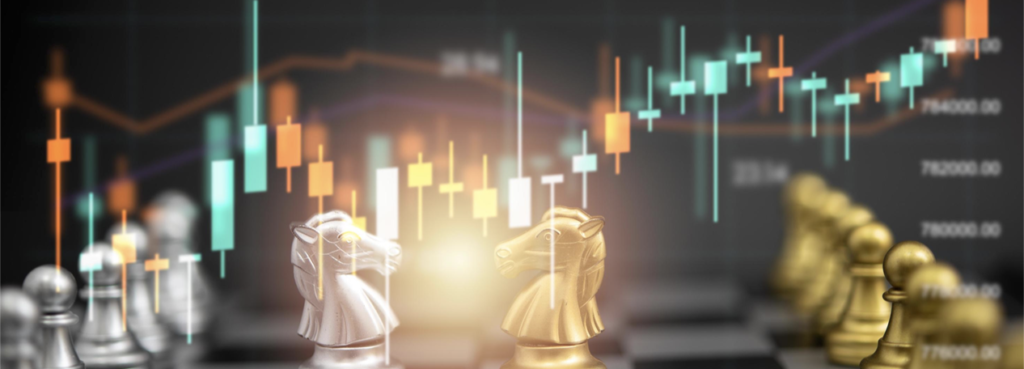06
2024/06
Expert tips for handling consecutive trading losses
“King Cobra” graduated from Fudan University in 2011 with a Master’s in Economics. He started trading stocks in 2010 and entered the trading market in 2014, frequently appearing on the expert leaderboard.
He believes investing and gradually increasing small amounts of money is the best approach to speculative markets. He chose the nickname “King Cobra” because the snake’s extraordinary agility is essential for intraday short-term trading.

1. Do You Need to Predict the Market?
Trader: Hello, teacher! I have been trading for three years and often fail to predict market trends, resulting in losses. Should I expect the market? Does it have any significance?
King Cobra: The answer is yes. There’s a famous saying that you shouldn’t predict the market but follow it. This means being adaptable and staying flexible to prior predictions. When preparing for a trade, you must study the structure of your target market. Within a given time frame, determine if the market is in a consolidation or trending phase and identify its technical patterns and potential movements.
Having a prediction helps you decide whether to go long, short or stay out of the market. It also provides a benchmark to compare against actual market movements. You should adjust your forecast if the market moves beyond your predicted range.
In the uncertain world of speculative markets, precision is a luxury. Instead of specific points, use ranges for predictions.

2. Handling Long-Term Losses
Trader: I am an ordinary trader with several years of experience, hoping to become a consistently profitable trader. However, I often incur losses, and sometimes these losses are consecutive. How should I deal with long-term losses? Is there a way to change my situation?
King Cobra: In speculative trading, no one has smooth sailing. When trading is not going well, stubbornly fighting the market is a common pitfall. Poor luck is a factor, but there are likely issues with your market forecasts and trading plans. Anger only exacerbates these problems. When facing consecutive losses, stop trading immediately. Don’t fight the market or deplete your trading capital in a losing streak.
Always learn to accept losses and prioritize preserving your capital. Wait for clear opportunities and a calm state of mind before resuming trading. After stepping away from the market, review and digest your past trades. This reflection is crucial for growth.
Severe losses or account blowouts typically indicate deeper psychological issues beyond trading mistakes. Mature traders must develop psychological adjustment mechanisms to manage trading fluctuations.
Similarly, after a streak of consecutive wins, take a break. Overconfidence from good luck can lead to reckless decisions. Remember to withdraw some of your profits as a risk control measure, especially if you trade with high leverage.

3. Are Technical Indicators Useful?
Trader: Lately, my trading system seems to fail, and various indicators feel ineffective. I’ve spent much time learning technical indicators but often hear about the ‘uselessness of indicators’. Are these technical indicators useful?
King Cobra: Many traders complain that technical indicators are useless due to improper use or unrealistic expectations. Technical indicators are not a magic solution for predicting market trends but are only partially functional.
Indicators measure past and recent market conditions, providing predictive value, but not with 100% accuracy. For instance, a bearish engulfing pattern suggests a strong reversal at the top. However, if subsequent candlesticks close above the engulfing high, the reversal signal fails, and the uptrend continues.
More than just relying on a single technical indicator is required. Daily, weekly, and monthly indicators are more reliable than those on a 4-hour or shorter timeframe. For effective trading, combine technical analysis with news and fundamental analysis.

4. Is Trading Like Gambling?
Trader: Trading feels like gambling to me. Sometimes, it seems like the odds in gambling are better. Why is that? Have I not grasped the essence of trading? What’s the difference between speculative trading and gambling?
King Cobra: Betting on uncertain outcomes is gambling, and treating speculative trading as gambling is understandable. Only highly skilled gamblers win in casinos – similarly, only experienced traders profit in the speculative market, where most traders suffer losses.
To join the minority of winners, develop trading techniques that suit your personality and match the market structure. Gradually accumulate profits with small capital. Starting with significant capital and making all-or-nothing bets is a common mistake that leads to heavy debts.
Only trade when you understand the market and stay ahead of it. Trying to capitalize on all market conditions is unrealistic. Carefully select suitable trading opportunities.



